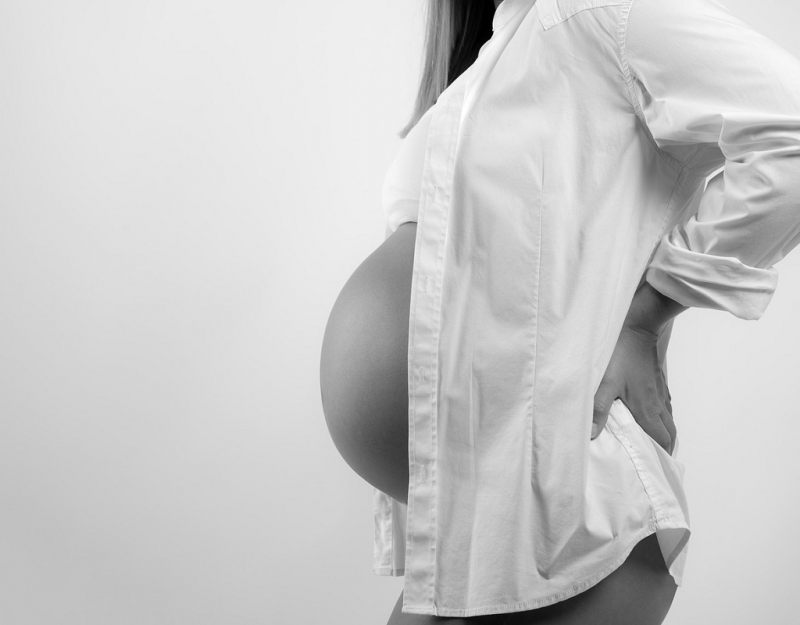Pregnancy is a wonderful time but it can also bring a range of complaints ranging from making you uncomfortable to being quite painful. Understand that these complaints are all very normal. If you have any concerns, please speak to your doctor or midwife.
Acne during pregnancy
Some women notice an improvement in their acne during pregnancy. but this doesn’t happen for everyone. Some women find that acne becomes a problem for them during pregnancy, even if they haven’t been bothered by it in the past.
Acne can range from whiteheads and blackheads to inflamed red bumps. Acne flare-ups in the first trimester are fairly common because hormones, mainly progesterone, change rapidly. As hormone levels change, they can trigger excess oil production, which can contribute to your acne. Pimples can appear on your neck, shoulders, back and face.
Treating acne involves using a mild cleanser, followed by a mild, non-clogging moisturiser, one preferably with sunscreen. Avoid products that contain salicylic acid – their safety during pregnancy is suspect. Drinking lots of water may help flush bacteria and oil from your pores. Talk to your doctor about using over-the-counter acne treatments, and be sure to avoid any pregnancy prescription products until you talk to your doctor.
Accutane (isotretinoin) is commonly prescribed for the treatment of acne. DO NOT take Accutane during pregnancy! Taken during the first trimester, Accutane is responsible for a higher frequency of miscarriages and malformation of the fetus.
Backache
As your baby grows, your ligaments loosen to prepare your body for the birth. This, combined with the fact that the strain from altered posture can also exacerbate your discomfort.
Experiencing backache during pregnancy is very common and affects most pregnant women at some stage. Backache will often feel worse at night.
The best ways to reduce backache are to:
- Avoid prolonged standing
- Make sure your chair is comfortable and has good back support
- Rest regularly, even for a short time, and try to keep your legs elevated
- Avoid heavy lifting
 Constipation
Constipation
Constipation is also common in early pregnancy, brought on by two changes in your body. Increased hormones, whereby your body produces progesterone, which relaxes the smooth muscles of the intestinal wall and stomach, resulting in a slow down of digestion, and your blood volume increasing. If you don;t drink enough fluids to keep up with he increase in blood volume, you will experience dehydration which causes constipation. So drink lots of fluids, exercise and snack on prunes!
Do not use laxatives without your doctor’s approval. If constipation is a continuing problem, discuss treatment at a prenatal visit. Try not to strain when you have a bowel movement as straining can lead to hemorrhoids.
 Cramps
Cramps
Experiencing muscle cramps in your feet, thighs or legs are extremely common during pregnancy. The exact reason for this is not known, although it is suspected that the expansion of the uterus may put pressure on the nerves and blood vessels in the leg, causing leg cramps and some occasional pain.
If a cramp strikes, try stretching the affected limb or muscle. Straighten your leg with your toes coming towards you; ask your partner to help, if you need it. Little moments like this are a good way to stay bonded over your pregnancy and get him involved in what you’re going through. Standing up to let your leg stretch may also offer some relief. If the painful cramps persist, convince him to give you a massage, or book a professional massage and enjoy the relaxation time, the rest will do you good.
Diet can make a difference, too. Some nutritionists believe that calcium, potassium and phosphorous supplements can relieve the cramping but make sure you speak to your doctor before taking any supplement. A healthy diet, including fresh fruit and green leafy vegetables, plus enough calcium-rich foods, such as milk, cheese or yoghurt, will also help.
 Frequent urination
Frequent urination
During the first trimester of your pregnancy, the need to go to the toilet regularly is caused by hormonal changes. In later pregnancy, it will be because of the increasing size and weight of your baby pressuring the bladder.
 Heartburn
Heartburn
Heartburn discomfort is one of the most common complaints of pregnancy. Heartburn is defined as a burning sensation in the middle of your chest; it often occurs after eating. You may also experience an acid or bitter taste in your mouth and increased pain when you bend over or lie down. During the first trimester, nearly 25% of all pregnant women have heartburn, increasing in the third trimester. Later, it may become more severe when your growing baby compresses your digestive tract. Eat small, frequent meals. One sure way to get heartburn is to eat a large meal, then lie down!
Ease mild reflux symptoms with simple lifestyle adjustments:
- Try raising the head of your bed by about 15cm by propping yourself up on pillows
- Avoid late nights meals/snacks
- Avoid spicy and acidic foods
- Give up alcohol and smoking – as well as harming you, cigarettes and alcohol are risks to the good health of your developing baby.
Headaches
Tension headaches are caused by many things, including stress, fatigue, heat and noise. Cluster headaches come in groups, last about an hour each time and can continue for weeks or months. Acetaminophen is okay to use for these types of headaches.
Natural pain relief for headaches: Fold a scarf lengthwise until it forms a 5cm band, tie it around your head and knot it at the point where pain is most intense. Pressue reduces blood flow to the area and relieves the pounding caused by swollen blood vessels.
Migraines
Migraine headaches are often an inherited disorder. Nearly one in five pregnant women has a migraine at some point during pregnancy. A migraine can last for a few short hours up to three days. Some women suffer more during pregnancy because of their changing hormone levels.
Natural pain relief for migraines: Ginger may help with migraines. Studies have shown that a pinch of powdered ginger in water may be as effective as prescription medicines. Research shows that ginger can block the production of prostaglandins, which cause pain. When you first feel the symptoms of a migraine, mix 1/3 teaspoon of powdered ginger in a cup of water. Drink this mixture three of four times a day for three days, for relief.
Sciatic-nerve pain
Many women experience an occasional excruciating pain in their buttocks and down the back or side of their legs as pregnancy progresses. This is called sciatic-nerve pain. The sciatic nerve runs behind the uterus in the pelvis to the legs. It is believed the pain is caused by pressure on the nerve from the growing expanding, uterus. The best treatment for the pain is to lie on your opposite side. This helps relieve pressure on the nerve.
Swollen ankles, feet and fingers
Around 80 percent of women will experience swelling of this kind. With extra fluid in your body during pregnancy, some of it can collect in your legs. If your job requires you to stand for long periods of time, especially in hot weather, this fluid can cause swelling in your ankles and feet. It was once believed that calcium supplements might relieve some symptoms but studies have shown that this isn’t the case.
Remember:
Swelling may be a symptom of high blood pressure or pre- eclampsia so it’s important to talk to your doctor or midwife about any swelling.
 Tiredness
Tiredness
Your first trimester will, no doubt, leave you feeling tired but rest assured this is normal and it will get better as your pregnancy progresses. Aim for at least eight hours sleep each night and, if possible, take a rest during the day. The healthier you are, in both mind and body, the more you will enjoy your pregnancy.
Developing coping strategies to help manage your tiredness can help. They may seem basic but reminding yourself that it’s important can help.







Leave A Comment
You must be logged in to post a comment.